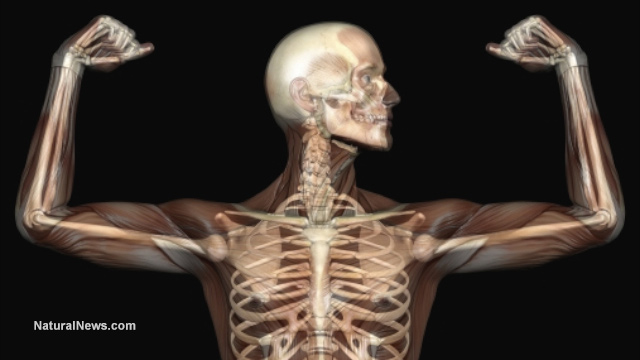
Growing up, a lot of people were led to believe the myth that only milk contains the right amount of nutrients to make their bones strong. Most studies, in particular, only showed how calcium benefits our bones; however, these would not delve into the details of bone health.
Scientists from the University of Surrey in the U.K. sought to debunk this myth as well, setting out to determine the association between some nutrients found in fruits and vegetables and bone health, in a study published in the American Journal of Clinical Nutrition. In total, 62 women, aged 45 to 55 years (as researchers noted that these age groups “are crucial stages in skeletal growth”), were randomly selected from a health register to be part of the study. Before proceeding with the tests, researchers first made sure that no participant had taken any medication or suffered from any condition that may affect their bone metabolism.
The team measured bone mineral density at the lumbar spine and left femur using dual-energy X-ray absorptiometry. In addition, the forearm’s bone density was assessed using peripheral quantitative computed tomography. As for bone loss, they calculated it by using a urinary excretion of pyridinoline and deoxypyridinoline and bone formation by measuring serum osteocalcin.
Moreover, researchers looked into the participants’ nutrient intake – in particular, potassium, magnesium, vitamin C, beta-carotene, fiber, zinc, and phosphorous, and their dietary intakes were assessed using a validated questionnaire. As for their past dietary intake – which includes food items such as milk, milk products, cheese, fruit, and vegetables – the participants were asked about to recall their consumption during childhood until early adulthood. (Related: Magnesium boosts bone health in teenage girls.)
Mother Nature’s micronutrient secret: Organic Broccoli Sprout Capsules now available, delivering 280mg of high-density nutrition, including the extraordinary “sulforaphane” and “glucosinolate” nutrients found only in cruciferous healing foods. Every lot laboratory tested. See availability here.
Researchers found that women who reported a high consumption of fruits during childhood and those with medium and low intakes have great differences in the femoral neck bone density. “Average total forearm bone mineral density and average cortical bone mineral density were greater with higher intakes of potassium, magnesium, fiber, and alcohol,” the authors wrote. “No differences in forearm bone mineral density were found according to past nutrient intakes.”
Although further research is needed to confirm these findings fully, the researchers concluded that some nutrients, which are abundant in fruits and vegetables, are beneficial for bone health.
What fruits and vegetables do inside the body
To support and maintain balanced pH levels, fruits and vegetables produce alkaline-like chemicals during digestion. This process is very helpful since our bodies take calcium and other minerals from the bones when we’re becoming too acidic – this, of course, results in weaker bones.
For people who are over the age of 50, it is recommended to add more garlic and onions to their diets since one study showed great effects of these two to bone health. It appeared that women who ate onions daily had five percent more density than those who ate them less.
In case garlic and onions are not your favorites, there’s a variety of fruits and vegetables rich in magnesium, vitamin K, and calcium that can also help balance your body’s acidity. Some examples are:
Vegetables
- Artichokes
- Beet greens
- Collard greens
- Potatoes
- Spinach
Fruits
- Bananas
- Guava
- Raisins
- Strawberries
- Watermelon
You’ll surely eat more fruits once you find their great benefits to your body by visiting Fruits today.
Sources included:
Bandolier.org.uk
BoneJoint.net
